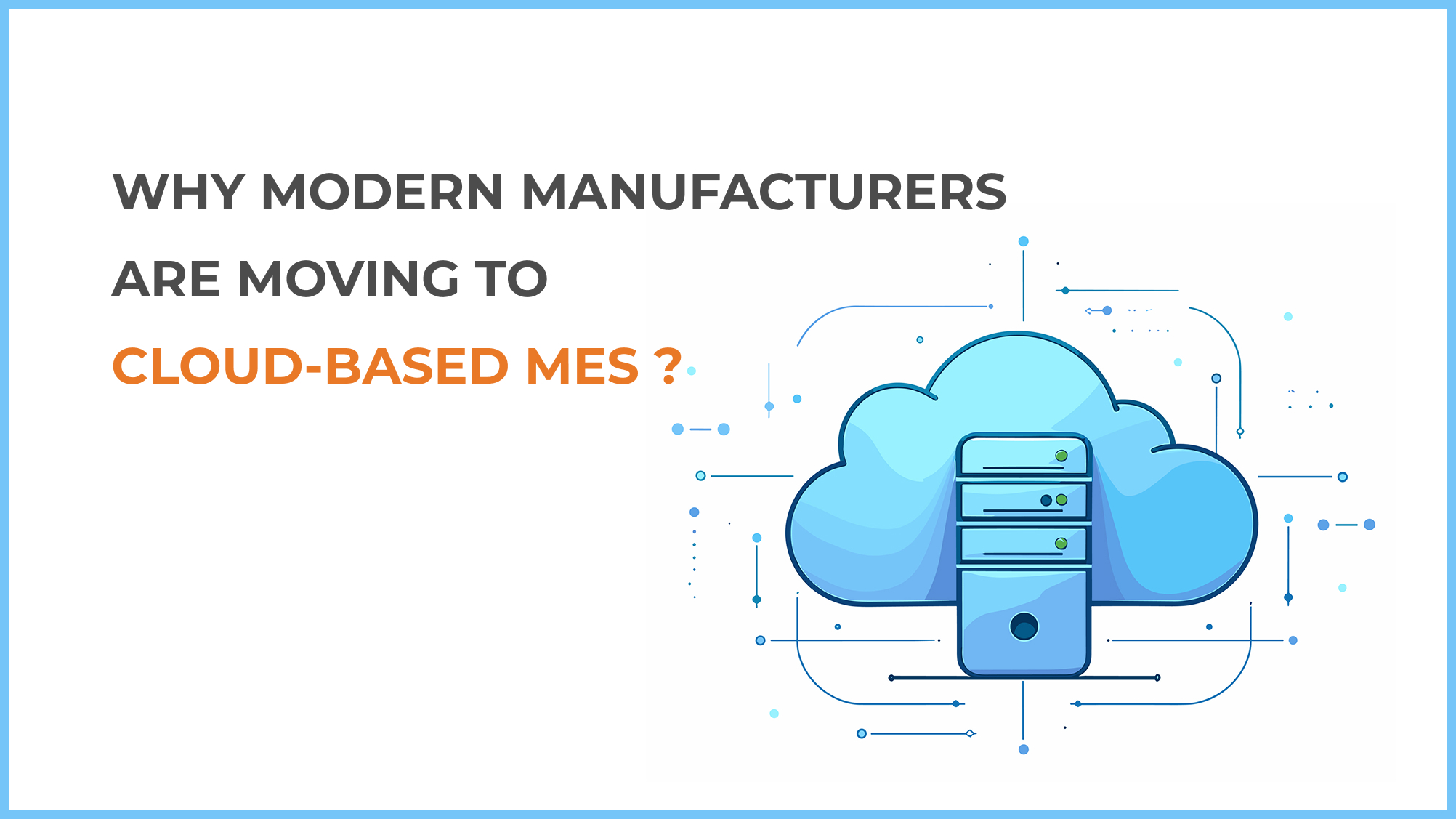Manufacturing companies often struggle to find an ERP that truly fits their needs. Generic systems may cover basics, but they rarely address the complexities in production planning, shop floor control, and supply chain management. That’s why many leaders evaluating what is the best ERP system for manufacturing are turning to flexible, customizable platforms. Among these, Open Source ERP for manufacturing stands out — offering the freedom to adapt the system around unique workflows while keeping costs manageable. In this blog, we’ll explore why manufacturers should consider open source and how the right partner can deliver a solution that scales with growth.
What is ERP for Manufacturing?
An ERP for manufacturing is software designed to manage and connect all the core activities of a manufacturing business, such as planning, production, inventory, and delivery. Unlike general purpose ERP systems, it can either be a specialized module within a broader ERP or a dedicated solution built for production focussed needs.
You may also hear it referred to as a Manufacturing Execution and Planning System (MEPS). Both terms describe the same goal: coordinating materials, machinery, people, and processes so production runs reliably and efficiently. “ERP” emphasizes cross-department integration, while “MEPS” highlights its direct role on the shop floor and in planning.
A manufacturing ERP (or MEPS) also integrates with related functions—procurement, warehousing, logistics, order management, product information management, and more—ensuring information flows seamlessly across the organization. In short, it’s designed to handle the unique complexity of manufacturing operations, not just generic business workflows.
To understand why manufacturing ERPs (or MEPS) matter in practice, let’s look at the core functions they perform on the shop floor and across the supply chain.
Functions of an ERP for Manufacturing
Manufacturing ERPs (sometimes called MEPS) are more than just software modules — they’re the backbone that connects the shop floor to the rest of the business. The real value comes when technical functions directly support business outcomes. Below, we map the core functions of a manufacturing ERP to the strategic value they create, so you can see how each capability translates into measurable impact.
|
ERP Function |
What It Does |
Business Value |
|
Production Planning (BOM, routing, resources, calendars, MRP, work orders) |
Plans and schedules production with real-time visibility into materials, machines, and people. |
On-time order fulfillment, fewer bottlenecks, reliable delivery commitments. |
|
Production Cost Management |
Tracks and calculates material, labor, and overhead costs across production runs. |
Identifies waste, controls expenses, improves profitability. |
|
Procurement & Supplier Management |
Automates purchasing, vendor contracts, and supplier performance tracking. |
Stronger supplier partnerships, fewer material shortages, more resilient supply chains. |
|
Quality Management |
Defines inspections, captures defects, enforces compliance workflows. |
Consistent product quality, easier audits, lower risk of recalls. |
|
Inventory & Warehouse Management |
Provides real-time control of raw, WIP, and finished goods inventory with lot/batch tracking. |
Lower carrying costs, reduced stockouts, more efficient warehouse operations. |
|
Shop-Floor Control |
Monitors machine utilization, labor tracking, and job progress in real time. |
Higher throughput, early detection of issues, improved OEE (Overall Equipment Effectiveness). |

Choosing the Right ERP for Manufacturing: Proprietary vs. Open Source
Knowing what ERP does, the next step is deciding which type of ERP best suits your business model: proprietary or open source. Both approaches have their own strengths and trade-offs. The table below compares the two across key dimensions to help manufacturers evaluate which path best fits their operations.
|
Aspect |
Proprietary ERP |
Open-Source ERP |
|
Implementation Speed |
Ready-to-use out of the box with prebuilt modules. |
Requires configuration and tailoring to workflows; depends on partner expertise. |
|
Flexibility |
Limited by vendor roadmap and available customizations. |
High flexibility — systems can be customized to unique manufacturing needs. |
|
Cost Structure |
High upfront license fees + recurring subscription/maintenance costs. |
Lower licensing cost (free) but requires investment in implementation and support. |
|
Vendor Lock-In |
Strong — tied to vendor’s pricing, roadmap, and update cycle. |
Low — community-driven with freedom to adapt and extend. |
|
Fit for Complex Manufacturing |
May need costly customizations or third-party add-ons to support multi-level BOMs, routing, or MES integrations. |
Designed to be extended — easier to handle complex workflows and integrate with shop-floor systems. |
|
Support & Updates |
Centralized vendor support, predictable release cycles. |
Community-driven with updates, plus support from specialized implementation partners. |
Takeaway:
- Choose Proprietary ERP if you want standardized processes with minimal customization.
- Choose Open-Source ERP if you need flexibility, scalability, and freedom from vendor lock-in — especially critical in complex manufacturing environments.
Leading Open-Source ERPs for Manufacturing
When manufacturers choose open-source ERP, they quickly discover a few well-known platforms in the market. Each has its own strengths, limitations, and ideal use cases. Here are three of the most recognized options:
Odoo
Odoo is one of the most widely adopted open-source ERPs, known for its large app ecosystem and user-friendly interface. It’s especially popular among small to mid-sized businesses looking for a quick start with prebuilt modules for accounting, CRM, inventory, and basic manufacturing.
- Strengths: Modular apps, wide community support, fast to implement for standard use cases.
- Limitations for Manufacturing: Best suited for light manufacturing. Complex requirements like multi-level BOMs, routing, or advanced MRP II usually require heavy customization or third-party extensions.
ERPNext
ERPNext is built on the Frappe framework, which makes it both an ERP system and a platform for extensions. It offers modules for HR, finance, inventory, and manufacturing, and is popular among startups and small to mid-sized manufacturers that want a clean interface and relatively easy setup.
- Strengths: ERP as well as development framework, affordable, and well-suited for SMBs.
- Limitations for Manufacturing: While flexible, it can struggle with large-scale, high-volume operations or industries requiring deep integration with PLM/IoT systems. Its ecosystem, while growing, is less mature in enterprise-grade manufacturing scenarios.
Apache OFBiz™
Apache OFBiz, backed by the Apache Software Foundation, is both a mature ERP system and a development framework. Unlike application-first platforms such as Odoo, or SMB-focused frameworks like ERPNext, Apache OFBiz is built for enterprise-grade manufacturing complexity. Its architecture enables manufacturers to design custom processes, extend data models, and integrate deeply with enterprise and shop-floor systems — without being limited by prebuilt module constraints.
- Strengths: Deep adaptability, scalability from single-plant to multi-company deployments, and long-term stability from Apache governance.
- Limitations: Requires a skilled implementation partner to configure and extend effectively — but that’s also what makes it capable of handling the most complex and regulated manufacturing environments.
In short: Odoo is quick and light, ERPNext is flexible for SMBs, and Apache OFBiz is enterprise-ready.
Why Apache OFBiz Stands Out for Manufacturing?
Of the open-source ERP platforms available, Apache OFBiz™ provides the depth and adaptability required for enterprise-grade manufacturing. It delivers not just a mature ERP system but also a flexible framework for extending processes, integration capabilities with other enterprise systems, and supporting long-term innovation.
Here are the key differentiators that make Apache OFBiz stand out:
- Customizability
Every workflow, process, and module in Apache OFBiz can be tailored. Manufacturers don’t have to work around generic templates — the system adapts to their exact operational model.
Result: ERP that fits your processes, not the other way around.
- Scalability
From single-factory operations to multi-company, global deployments, Apache OFBiz scales seamlessly. It handles increasing transaction volumes, new modules, and integrations without compromising performance.
Result: Future-proof growth without replatforming.
- Apache Foundation Support
As a top-level Apache project, Apache OFBiz benefits from community contributions, security updates, and open governance. This ensures stability and continued innovation for years to come.
Result: Confidence in continuity and security for years to come. - Framework-Level Flexibility
Apache OFBiz is not just an application — it's also a development framework. This means manufacturers can build entirely new processes, integrate emerging technologies, or create industry-specific modules without breaking core functionality.
Result: Freedom to innovate while keeping a stable backbone.
Why Partner with HotWax Systems for Apache OFBiz ERP Implementation?
Choosing the right implementation partner is crucial to fully unlock Apache OFBiz’s potential in manufacturing. At HotWax Systems, we bring:
- Proven Apache OFBiz Expertise
Nearly two decades of experience delivering customized enterprise solutions on top of Apache OFBiz tailored to complex manufacturing needs. - Manufacturing-First Approach
Deep understanding of key manufacturing challenges such as complex multi-level BOMs, routing, MRP engines and shop floor integration to ensure real-world fit. - Long-Term Partnership
End-to-end support from initial implementation to ongoing maintenance and upgrades, so your manufacturing system continues to evolve as your business grows.
Backed by years of experience of implementing and customizing Apache OFBiz for industries like aerospace, automotive, FMCG, and apparel, HotWax System delivers ERP solutions that are not just functional — but tailored for real-world shop-floor execution.
HotWax Accelerator
To accelerate and enhance Apache OFBiz for modern manufacturing needs, HotWax Systems developed HotWax Accelerator — an advanced, ready-to-use application built on top of Apache OFBiz. HotWax Accelerator provides powerful building blocks tailored for Manufacturing Execution and Planning Systems (MEPS), delivering a comprehensive ERP solution for manufacturing industries.
Key features of HotWax Accelerator include:
- Consumer-Grade User Experience
Redesigned, intuitive interfaces for production, warehouse, procurement, and order management.
Result: Faster training, higher adoption, smoother daily operations. - Enterprise-Grade Search with Apache Solr
Fast, faceted search across orders, BOMs, and inventory.
Result: Critical data is always at your team’s fingertips. - Seamless Integration via Apache NiFi
Connects MES, PLM, WMS, and legacy systems with real-time data flow.
Result: Reduced errors and true visibility across the production lifecycle. - Built-in BI with Apache Superset
Pre-built dashboards and KPIs for efficiency, downtime, and throughput.
Result: Data-driven decisions without extra BI tools. - API-First Architecture
Extensive APIs for shop-floor equipment, IoT, and enterprise apps.
Result: Future-ready integrations to support Industry 4.0 initiatives. - Ongoing Support & Partnership
Continuous upgrades, compliance updates, and system optimization.
Result: An ERP platform that grows with your business.

Conclusion
For manufacturers, the question isn’t whether to use ERP — it’s which ERP can truly handle the complexity of production planning, shop-floor control, and supply-chain coordination. Open-source platforms stand out because they offer the flexibility and freedom to adapt, without the limits of vendor lock-in.
Among open-source options, Apache OFBiz™ is uniquely equipped to support enterprise-grade manufacturing. It combines the depth of a mature ERP with the adaptability of a development framework — making it ideal for businesses that need more than prebuilt modules.
But technology alone isn’t enough. The right implementation partner determines whether ERP becomes a growth driver or a stalled project. That’s where HotWax Systems comes in: with deep OFBiz expertise, a manufacturing-first approach, and long-term partnership, we help manufacturers translate ERP potential into real-world results.
And with the HotWax Accelerator, we make ERP even more powerful — delivering a modern user experience, built-in search and analytics, seamless integrations, and a foundation ready for Industry 4.0.
If you’re exploring the best open-source ERP for manufacturing, the path forward is clear: Apache OFBiz + HotWax Systems. Together, we deliver the flexibility of open source, the strength of enterprise-grade ERP, and the speed of a proven accelerator — so your ERP evolves as fast as your business.
Connect with our experts today to explore how we can help transform your operations with a tailored, future-ready ERP.






